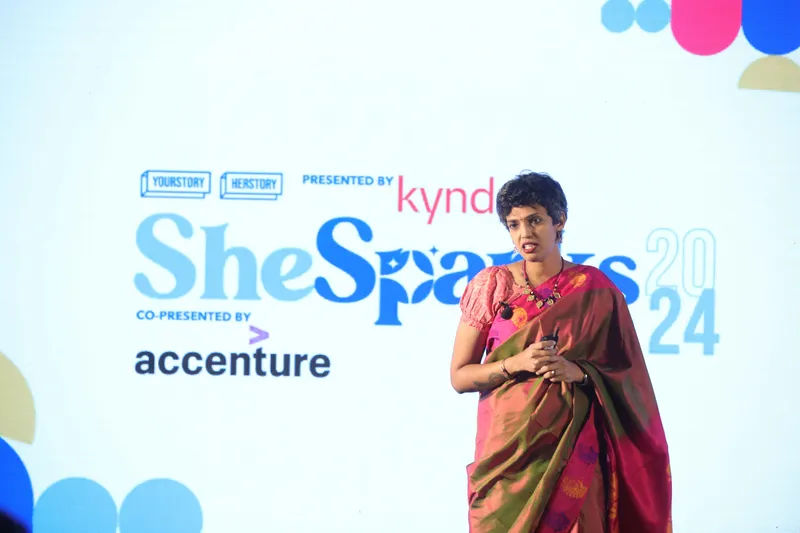Breaking the cycle of denial: VOICE 4 Girls advocates for gender equality at SheSparks 2024
At SheSparks 2024, Anusha Bharadwaj, Executive Director of VOICE 4 Girls, emphasised the need of eliminating gender inequality and creating safe spaces for women to grow.
A large number of marginalised adolescent girls get caught up in the “cycle of denial” and lose control over their own life decisions and perpetuates gender inequality in society, Anusha Bharadwaj, Executive Director of VOICE 4 Girls said at SheSparks 2024.
An NGO, VOICE 4 Girls uses education and awareness camps to empower marginalised women and eliminate gender inequality.
According to Bharadwaj, the plight of a young girl pushed her to launch the NGO. The incident happened in 2011 when Bharadwaj observed that the girl, who was pregnant, was not able to ask questions to the doctor and that her mother-in-law had to intervene. This made Bharadwaj realise the importance of education in a girl’s life.
In her talk ‘From Vision to Voice: Driving Gender Equity in India’, she explained how adolescent girls coming from marginalised communities don’t have access to the information required to make healthy decisions about their lives and are often directed by others.
Bharadwaj pointed out that one in five adolescent girls in India are married before 18 years of age and one in five girls undergo childbirth before they are physically and mentally prepared for it.
According to NFHS-5 (National Family Health Survey), in India 6.8% of women aged 15–19 began childbearing between 2019 and 2021.
According to her, due to inaccessibility to the knowledge required to understand bodily changes, financial security and safety, these adolescent girls end up getting caught in a vicious loop of poverty.
With VOICE4Girls, Bharadwaj wants to break the silence around the ‘cycle of denial’ and empower marginalised adolescent girls with the information needed to make decisions around health, education, career and relationships.
Keeping these girls away from life-sustaining knowledge, Bharadwaj believes, has dimmed their critical thinking and facilitated gender inequality at a grassroots level of community life.

Anusha Bharadwaj
“A girl not only has the power to shape her future but also the future of the family she is born into and the family she will be raising one day. The effects will be felt in generations to come. Our organisation has been aiming to empower these girls with education and provide them with a space where they can safeguard equality or call out inequality,” said Bharadwaj.
The community organisation engages counsellors and local college students as volunteers who teach adolescent girls how to think critically and speak with fluency, giving them a space where they can openly explore their curiosity around bodily changes, reproductive health, financial literacy and other relevant topics.
According to Bharadwaj, the organisation forms peer groups among these girls who can then go back to their friends or respective communities and spread awareness, empowering other women.
Bharadwaj narrated the story of an adolescent girl attached to the organisation who “negotiated” her elder sister’s marriage with her parents after she was informed that marriage below 18 years of age is not legal.
“Do you know that if all adolescent girls in the country realise and work to their full potential, they can contribute 110 billion dollars to India’s GDP,” said Bharadwaj.
Inequality affects both genders
Bharadwaj also noted that inequality affects both men and women.
She explained how many young men pretend to have all sorted out in life but in truth are affected by gender stereotyping, failure and rejection. According to her, young men face many societal and financial pressures and have similar doubts about life as women do. Hence, her organisation aims to embrace even marginalised adolescent young men in the initiative and revitalise their confidence.
To sum up the conversation, Bharadwaj shared some ways to snap gender inequality by fearlessly calling it out or defending equality with negotiation. She also emphasised creating ‘safe spaces’ for women where they can grow.
“The answer to inequality cannot be silence. One has to call it out. A change usually begins at home. It starts with a house where one’s children are not boxed by the gender stereotypes which society throws at them freely,” she said.
Edited by Affirunisa Kankudti







